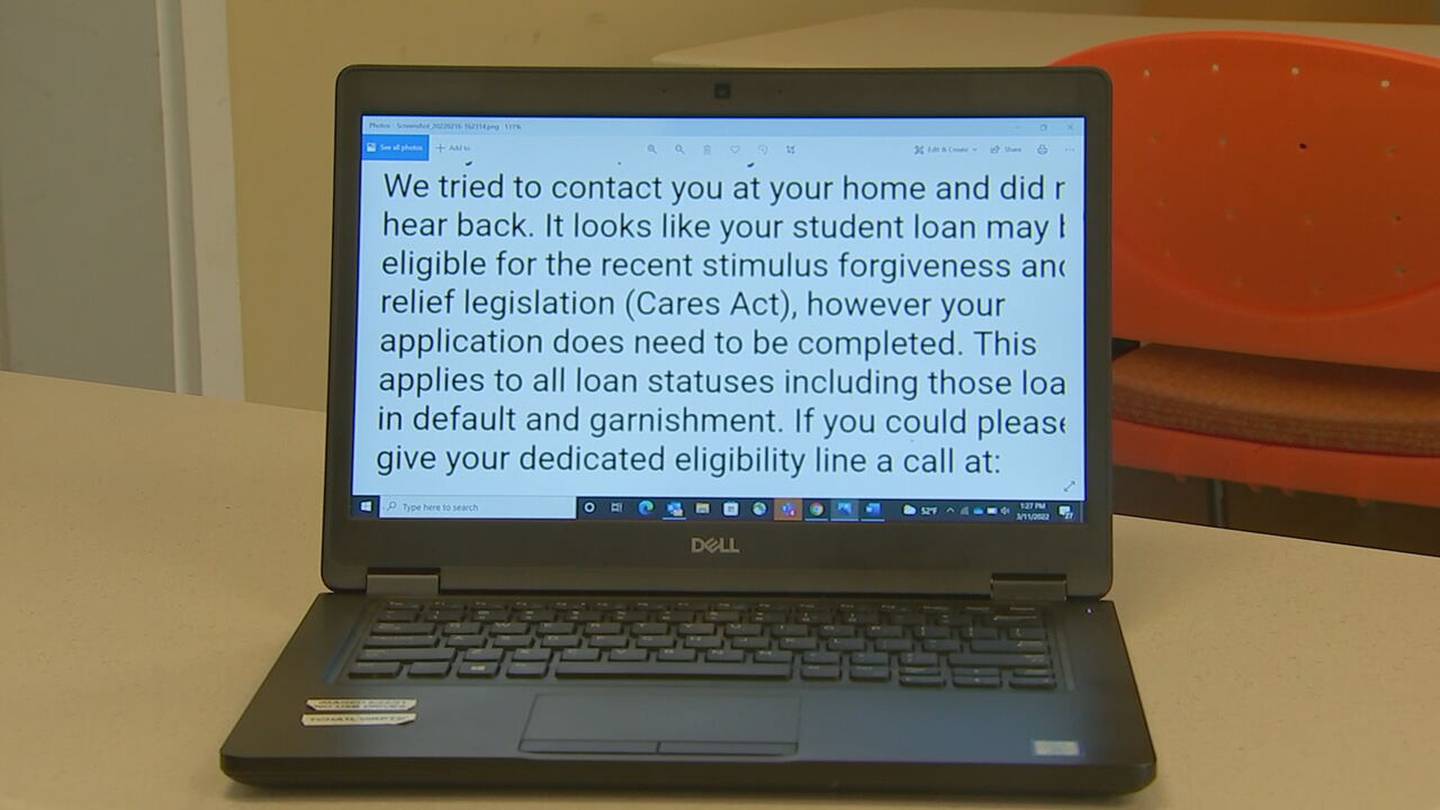
CHARLOTTE — Many student loan borrowers haven’t had to pay back their student loans during the pandemic, but they will have to start in less than two months.
The federal government extended the student loan forbearance measures until May 1. Scammers know this and see an opportunity to play off any confusion the change brings.
[ ALSO READ: DOE: 100,000 student loan borrowers eligible for debt cancellation ]
Toya, who asked Channel 9 not to share her last name, has student loans, so when she got an email about it, it did not seem too odd.
The email said, “We tried to contact you at your home and did not hear back. It looks like your student loan may be eligible for the recent stimulus forgiveness and relief legislation (Cares Act) …”
But there were some red flags. The email did not include a company name and used a Hotmail address instead of an official business account. There were also several grammatical mistakes.
Fortunately, Toya was suspicious. “It just didn’t sound right, so that’s why I copied it and sent it to you, to kind of see what was what,” she told Action 9′s Jason Stoogenke. “It never hurts to dig a little deeper to see if it’s really true, or if it’s just a phishing scam or something.”
[ ALSO READ: Action 9 helps Mooresville woman get refund after flight cancellation ]
The U.S. Department of Education has information about scams on its website. It gives examples of suspicious calls, emails and texts that you may receive.
One example is…







